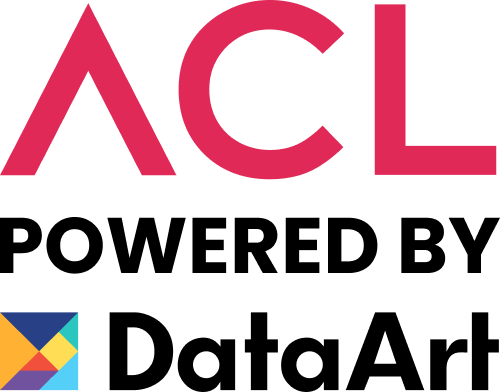How Latin America's Tech Talent is Powering Nearshore
Latin America is rapidly emerging as a vibrant hub for technology and innovation, marking its significance on the global tech map. This surge is not just in numbers but in the quality and impact of its contributions to the software development realm. From bustling tech hubs in Brazil and Mexico to the rising stars of Colombia and Argentina, Latin America is proving to be a fertile ground for tech talent and innovation.
This blog post delves into the dynamic world of software development in Latin America, exploring the rich landscape of tech talent, the programming prowess of Latin American coders, the thriving developer communities, and the innovative spirit driving the region's tech startups. Join us as we navigate through the exciting developments shaping the future of technology in Latin America.
The Rise of Software Development in LATAM
The narrative of software development in Latin America is one of exponential growth and boundless potential. Countries like Brazil, Mexico, Argentina, and Colombia are leading the charge, showcasing significant strides in the tech sector. This ascendancy is fueled by a confluence of factors that have created an ideal ecosystem for tech growth and innovation.
-
Educational Reforms and Talent Development:
Educational institutions across Latin America have revamped their curricula to include more STEM (Science, Technology, Engineering, and Mathematics) programs, producing a new generation of tech-savvy professionals. Initiatives like Brazil's "Science without Borders" and Colombia's "Young People in Action" have played pivotal roles in enhancing the skills and global competitiveness of Latin American tech talent. -
Government Initiatives and Investment:
Governments across the region are recognizing the value of the tech sector as a driver of economic growth. Initiatives such as Mexico's "Prosoft" and Chile's "Start-Up Chile" have been instrumental in fostering a conducive environment for tech innovation and entrepreneurship. These programs offer financial incentives, regulatory support, and international networking opportunities to burgeoning tech firms and startups. -
Foreign Investment and Global Collaboration:
The influx of foreign investment from tech giants and venture capitalists has been a testament to the region's potential. Companies like Google, Intel, and IBM have established research and development centers across Latin America, tapping into the local talent pool and fostering technological advancements. This global collaboration has not only bolstered the tech infrastructure but has also provided Latin American developers with exposure to international projects and practices. -
Thriving Tech Hubs and Ecosystems:
Cities like São Paulo, Buenos Aires, Medellín, and Guadalajara are becoming synonymous with tech innovation, often referred to as the "Silicon Valleys" of Latin America. These cities boast vibrant tech ecosystems, replete with coworking spaces, tech meetups, and innovation hubs that facilitate networking, knowledge sharing, and collaboration among tech professionals.
 The rise of software development in Latin America is a testament to the region's resilience, creativity, and forward-thinking mindset. As Latin American countries continue to embrace digital transformation, they are not just participating in the global tech narrative but are actively shaping its future. This section sets the stage for the subsequent discussions on tech talent, programming skills, developer communities, and startups in Latin America.
The rise of software development in Latin America is a testament to the region's resilience, creativity, and forward-thinking mindset. As Latin American countries continue to embrace digital transformation, they are not just participating in the global tech narrative but are actively shaping its future. This section sets the stage for the subsequent discussions on tech talent, programming skills, developer communities, and startups in Latin America.
Software Engineers’ Impact on Society
The work of software engineers has a profound impact on society, and it’s clear companies worldwide know this, as the Software development market is expected to reach $1039 million by 2027 with a CAGR of $22.54% from 2020 to 2027. Developers create tools that enable remote communication, advance medical research, power financial systems, and enhance entertainment experiences. From e-commerce platforms that revolutionize shopping to the algorithms that drive recommendation engines, software engineers shape our daily lives. Moreover, software engineers play a crucial role in addressing global challenges. They develop software for climate modeling, healthcare innovations, and disaster response systems. Their skills are leveraged to make the world a better place and can bring tremendous change and innovation to your organization.
Why Nearshoring in Latin America Outperforms?
The tech landscape in Latin America is rich with a diverse pool of highly skilled professionals who are not only adept at traditional programming languages but are also quick to adopt emerging technologies. The region's tech talent is characterized by a unique blend of creativity, adaptability, and a collaborative spirit, making Latin American coders highly sought after in the global tech arena.
-
Diverse Skill Set:
Latin American developers possess a broad range of skills, from web and mobile development to software engineering and data science. The prevalence of full-stack developers is particularly notable, with individuals often proficient in both front-end and back-end technologies. This versatility enables them to contribute comprehensively to multifaceted projects. -
Programming Languages:
While globally popular languages like JavaScript, Python, and Java are widely used among Latin American developers, there's also a growing interest in niche and emerging languages such as Kotlin, Swift, and Go. This diversity in programming skills reflects the region's openness to innovation and its adaptive approach to the evolving tech landscape. -
Developer Communities and Networks:
Latin America boasts a thriving ecosystem of developer communities and networks, fostering a culture of knowledge sharing and collaboration. Platforms like GitHub, Stack Overflow, and regional forums such as LatinCoders and DevsLATAM serve as vital hubs for developers to exchange ideas, solve challenges, and stay updated on the latest tech trends. Annual tech conferences and hackathons, such as Campus Party in Brazil and Mexico, and the Colombia Developer Conference, further contribute to the vibrant community spirit, providing opportunities for learning, networking, and showcasing innovations. -
Education and Continuous Learning:
Continuous learning is a hallmark of the Latin American tech community. Developers in the region are known for their commitment to self-improvement and lifelong learning, often engaging in online courses, bootcamps, and certification programs to enhance their skills. This culture of education is supported by numerous local and international tech education providers, offering both online and in-person training tailored to the needs of the Latin American market. The spotlight on tech talent in Latin America shines brightly, illuminating a community that's dynamic, highly skilled, and integral to the global tech ecosystem. The blend of technical proficiency, a passion for learning, and a collaborative culture positions Latin American developers as valuable contributors to tech projects worldwide.

RECENT BLOG POSTS!
Latam Nearshore: Bridging the Global Tech Gap
Latin American coders are increasingly becoming pivotal players in the global technology landscape, bridging the gap between local innovation and international tech needs. Their ability to navigate diverse project environments, coupled with a deep understanding of global tech standards, makes them invaluable assets to multinational companies and remote teams.
-
Global Collaboration:
The digital era has transcended geographical boundaries, enabling Latin American developers to collaborate seamlessly with international teams. Their proficiency in English, coupled with cultural adaptability, facilitates effective communication and integration into global projects. Success stories abound of Latin American coders contributing to critical software solutions, apps, and platforms for companies around the world. -
Remote Work and Freelancing:
The rise of remote work has opened new horizons for Latin American tech professionals, allowing them to offer their expertise to employers and clients globally. Platforms like Upwork, Freelancer, and Toptal are replete with Latin American developers offering a wide range of services, from software development and data analysis to AI and blockchain projects. This trend not only showcases the region's tech talent on a global stage but also contributes to the local economy by bringing in international revenue. -
Success Stories and Case Studies:
Numerous inspiring stories of Latin American developers and teams making significant impacts exist. For instance, Argentine developers played a crucial role in the development of a globally used open-source tool that aids in software debugging and testing. Similarly, a team from Brazil contributed to a major feature in a widely used international payment gateway, showcasing the high level of expertise and innovation that Latin American coders bring to the table.
The contributions of Latin American coders to the global tech ecosystem are a testament to their technical prowess, innovative mindset, and collaborative nature. As they continue to bridge the tech gap, they not only elevate their local tech communities but also contribute significantly to shaping the future of technology worldwide. This section highlights the tech talent in Latin America and the significant role Latin American coders play in the global tech industry. If you're satisfied with this direction, I can proceed to the next sections, focusing on the tech startup ecosystem and the programming skills landscape in LATAM. Let me know how you'd like to move forward!
The Vibrant LATAM Nearshore Tech Ecosystem
Latin America's tech startup ecosystem is buzzing with activity, innovation, and entrepreneurial spirit. Fueled by a combination of local talent, international investment, and supportive governmental policies, the region has become a breeding ground for startups that are not only disrupting local markets but also making a mark on the global stage.
-
Fintech Revolution:
One of the most notable sectors where LATAM startups are shining is fintech. With a significant portion of the population historically underserved by traditional banking systems, fintech startups have stepped in to bridge the gap, offering innovative financial solutions that are accessible and user-friendly. Companies like Nubank in Brazil, Ualá in Argentina, and Kueski in Mexico are leading the way, providing digital banking, payment solutions, and credit services to millions of users. -
Edtech and Healthtech Innovations:
The pandemic accelerated the growth of edtech and health tech startups in the region, addressing critical needs in education and healthcare. Platforms like Platzi, an online education community, and La Haus, a real estate startup that's simplifying property transactions, are prime examples of how LATAM startups are leveraging technology to solve pressing societal issues. -
Supportive Ecosystem:
The success of the startup ecosystem in LATAM is also attributed to the supportive infrastructure that includes accelerators, incubators, and venture capital firms. Initiatives like Start-Up Chile, Ruta N in Colombia, and Wayra by Telefónica, provide startups with funding, mentorship, and international exposure. Additionally, events like the Latin American Venture Capital Association (LAVCA) Summit and the TechCrunch Startup Battlefield Latin America offer platforms for startups to showcase their innovations and connect with potential investors. -
Cross-Border Expansion:
Many LATAM startups are not content with local success and are expanding across borders, both within and outside the region. This ambition to scale globally is a testament to their robust business models, adaptability, and the universal appeal of their solutions. The tech startup ecosystem in Latin America is a testament to the region's innovative capacity and entrepreneurial zeal. With each passing year, LATAM startups continue to break new ground, attracting global attention and investment, and setting new benchmarks for success.
Programming Skills and Languages Shaping LATAM's Nearshore Tech Landscape
The tech landscape in Latin America is shaped significantly by the diverse programming skills and languages prevalent among its developers. The choice of languages and technologies reflects the region's dynamic tech environment, catering to a wide range of industries from web development and mobile applications to cutting-edge fields like AI and IoT.
-
Popular Programming Languages:
JavaScript continues to dominate the web development scene in LATAM, thanks to its versatility and the ubiquity of web applications. Python's simplicity and efficacy in data science and machine learning make it a favorite among developers working in AI, data analytics, and backend development. Java remains a staple for enterprise applications and Android app development, given its robustness and portability. -
Emerging Technologies and Frameworks:
LATAM developers are quick to adopt emerging technologies and frameworks, staying at the forefront of tech innovation. Technologies like Node.js, React, and Angular are popular for building scalable and dynamic web applications. Meanwhile, the adoption of cloud technologies, Docker, and Kubernetes reflects the region's shift towards DevOps practices and microservices architectures. -
Focus on Mobile Development:
With one of the highest mobile penetration rates in the world, Latin America's developers are highly skilled in mobile app development. Swift and Kotlin are becoming increasingly popular as developers strive to create intuitive, high-performing apps for iOS and Android platforms. -
Continuous Skill Upgradation:
Latin American developers are known for their commitment to continuous learning and skill enhancement. They actively participate in online courses, coding boot camps, and professional workshops to keep abreast of the latest programming languages and tech trends. This culture of lifelong learning is pivotal in maintaining the region's competitive edge in the global tech arena.
The programming skills and languages prevalent in Latin America not only define the current tech landscape but also shape the region's future in the global tech industry. By mastering a blend of traditional and emerging technologies, Latin American developers are well-equipped to tackle the challenges of today and innovate for the future.
 In conclusion, both nearshore and offshore software development have their merits and drawbacks. The choice between the two depends on various factors, including cost constraints, communication preferences, project complexity, and the need for agility. Businesses must carefully assess their specific needs and conduct comprehensive research on potential partners to ensure that their chosen outsourcing model aligns with their strategic objectives and project requirements. By doing so, they can leverage the benefits of global software development while minimizing the challenges. Get ahead of the competition with ACL's skilled professionals. We specialize in handling complex projects, and delivering innovative and cost-effective solutions.
In conclusion, both nearshore and offshore software development have their merits and drawbacks. The choice between the two depends on various factors, including cost constraints, communication preferences, project complexity, and the need for agility. Businesses must carefully assess their specific needs and conduct comprehensive research on potential partners to ensure that their chosen outsourcing model aligns with their strategic objectives and project requirements. By doing so, they can leverage the benefits of global software development while minimizing the challenges. Get ahead of the competition with ACL's skilled professionals. We specialize in handling complex projects, and delivering innovative and cost-effective solutions.
Don't miss out, reach out to us for a free discovery call!

-3.png)





